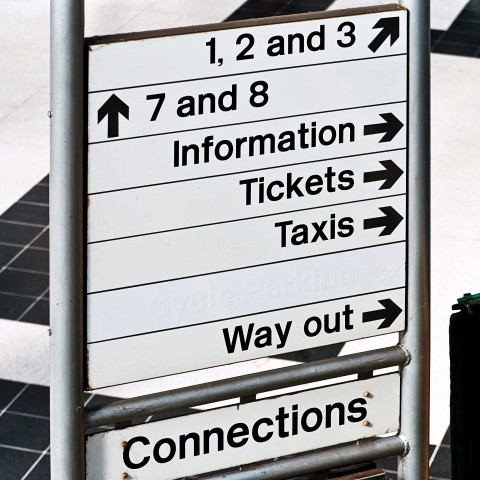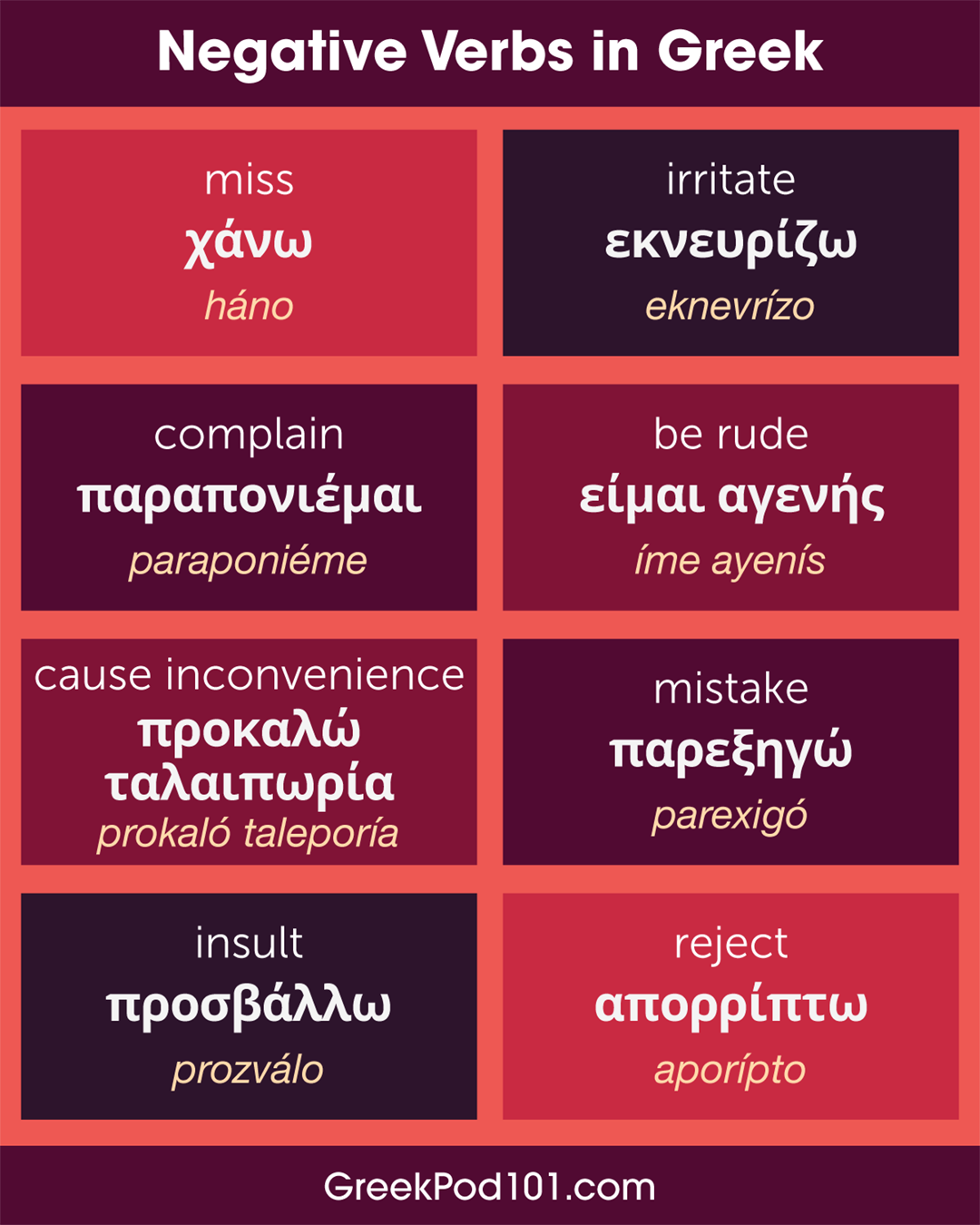
If you’ve been following us, it’s for sure that you’ve learned a bunch of Greek words and phrases.
Well done!
However, random words and phrases can’t mean anything unless they’re placed in the correct order. This is why we’ve created a dedicated blog post showcasing the correct Greek word order.
While ancient Greek word order was a bit more complicated, things in modern Greek are much simpler.
After reading this article, you’ll be able to construct full sentences in Greek like a native speaker.
Now, let’s have a look at some basic rules and comprehensive examples.
 Table of Contents
Table of Contents
- Overview of Word Order in Greek
- Basic Word Order with Subject, Verb, and Object (or Predicate)
- Word Order with Adverbial Phrases
- Word Order with Modifiers
- How to Change a Sentence into a Yes-or-No Question
- How to Form Long Sentences Step-by-Step
- Conclusion
1. Overview of Word Order in Greek

The basic word order in Greek sentences follows the SVO pattern. However, the sentence structure is flexible, and many other variations exist.
Overall, the sentence structure is the same as that in the English language. A major difference is that the subject can sometimes be omitted in Greek, as the form of the verb itself indicates the first, second, or third person so that the subject is often understood from the context. This is due to the conjugation of Greek verbs, according to which, the suffix of the verb changes based upon the person and the number of the subject.
2. Basic Word Order with Subject, Verb, and Object (or Predicate)
In this section, we’ll focus on the basic word order in modern Greek and its variations.
2.1 The Basic Word Order
Greek: Εγώ μελετώ ελληνικά.
Romanization: Egó meletó eliniká.
Translation: “I study Greek.”
Subject: Εγώ (Egó) | Verb: μελετώ (meletó) | Object: ελληνικά (eliniká)
Greek: Η Μαρία οδηγεί ένα αυτοκίνητο.
Romanization: I María odiyí éna aftokínito.
Translation: “Maria drives a car.”
Subject: Η Μαρία (I María) | Verb: οδηγεί (odiyí) | Object: ένα αυτοκίνητο (éna aftokínito)
Greek: Ο πατέρας μου είναι δάσκαλος.
Romanization: O patéras mu íne dáskalos.
Translation: “My father is a teacher.”
Subject: Ο πατέρας μου (O patéras mu) | Verb: είναι (íne) | Predicate: δάσκαλος (dáskalos)
Greek: Το ξενοδοχείο είναι μεγάλο.
Romanization: To xenodohío íne megálo.
Translation: “The hotel is big.”
Subject: Το ξενοδοχείο (To xenodohío) | Verb: είναι (íne) | Predicate: μεγάλο (megálo)
2.2 Word Order with Emphasis on the Object
Now, let’s take a look at what happens when we need to emphasize the object.

When we want to emphasize the object, we place the object at the beginning of the sentence, followed by the verb and the subject. This can also be perceived as a reversal of the basic sentence components, which in this case follow the OVS pattern, as shown in the examples below.
Greek: Ελληνικά μελετώ εγώ.
Romanization: Eliniká meletó egó.
Translation: “Greek (is what) I study.”
Subject: εγώ (egó) | Verb: μελετώ (meletó) | Object: Ελληνικά (Eliniká)
Greek: Ένα αυτοκίνητο οδηγεί η Μαρία.
Romanization: Éna aftokínito odiyí i María.
Translation: “(It is) a car (that) Maria drives.”*
Subject: η Μαρία (i María) | Verb: οδηγεί (odiyí) | Object: Ένα αυτοκίνητο (Éna aftokínito)
* This would be the answer to the question: Τι οδηγεί η Μαρία; (Ti odiyí i María?), or “What is Maria driving?” It indicates that she’s driving a car as opposed to a bus, for example.
Greek: Δάσκαλος είναι ο πατέρας μου.
Romanization: Dáskalos íne o patéras mu.
Translation: “(A) teacher is (what) my father (is).”
Subject: ο πατέρας μου (o patéras mu) | Verb: είναι (íne) | Predicate: Δάσκαλος (Dáskalos)
Greek: Μεγάλο είναι το ξενοδοχείο.
Romanization: Megálo íne to xenodohío.
Translation: “Big is (what) the hotel (is).”
Subject: το ξενοδοχείο (to xenodohío) | Verb: είναι (íne) | Predicate: Μεγάλο (Megálo)
3. Word Order with Adverbial Phrases

When it comes to adverbial phrases, Greek word order is almost identical to English. Adverbial phrases indicate information about the verb, such as “when,” “where,” or “how” something happened. These are normally placed at the end of the sentence. They can be single words (e.g. an adverb) or whole phrases (e.g. a prepositional phrase). If you want to learn more about Greek adverbs, visit our Top 100 Greek Adverbs article.
Greek: Εγώ μελετώ ελληνικά κάθε μέρα.
Romanization: Egó meletó eliniká káthe méra.
Translation: “I study Greek everyday.”
Subject: Εγώ (Egó) | Verb: μελετώ (meletó) | Object: ελληνικά (eliniká) | Adverbial phrase answering “When?”: κάθε μέρα (káthe méra)
Greek: Εγώ μελετώ ελληνικά στο σπίτι.
Romanization: Egó meletó eliniká sto spíti.
Translation: “I study Greek at home.”
Subject: Εγώ (Egó) | Verb: μελετώ (meletó) | Object: ελληνικά (eliniká) | Adverbial phrase answering “Where?”: στο σπίτι (sto spíti)
Greek: Εγώ μελετώ ελληνικά με το GreekPod101.com.
Romanization: Egó meletó eliniká me to GreekPod101.com.
Translation: “I study Greek with GreekPod101.com.”
Subject: Εγώ (Egó) | Verb: μελετώ (meletó) | Object: ελληνικά (eliniká) | Adverbial phrase answering “How?”: με το GreekPod101.com (to GreekPod101.com)
When more than one adverbial phrase needs to be included, their order is flexible. Let’s have a
look at some examples below:
Greek: Εγώ μελετώ ελληνικά κάθε μέρα στο σπίτι με το GreekPod101.com.
Romanization: Egó meletó eliniká káthe méra sto spíti me to GreekPod101.com.
Translation: “I study Greek everyday at home with GreekPod101.com.”
Subject: Εγώ (Egó) | Verb: μελετώ (meletó) | Object: ελληνικά (eliniká) | Adverbial Phrase 1: κάθε μέρα (káthe méra) [indicating time] | Adverbial Phrase 2: στο σπίτι (sto spíti me) [indicating place] | Adverbial Phrase 3: με το GreekPod101.com (to GreekPod101.com) [indicating manner]
However, it would be equally correct to use any of the following variations, with no change in the
meaning or usage.
Greek: Εγώ μελετώ ελληνικά στο σπίτι κάθε μέρα με το GreekPod101.com.
Romanization: Egó meletó eliniká sto spíti káthe méra me to GreekPod101.com.
Translation: “I study Greek at home everyday with GreekPod101.com.”
Greek: Εγώ μελετώ ελληνικά στο σπίτι με το GreekPod101.com κάθε μέρα.
Romanization: Egó meletó eliniká sto spíti me to GreekPod101.com káthe méra.
Translation: “I study Greek at home with GreekPod101.com everyday.”
Greek: Εγώ μελετώ ελληνικά με το GreekPod101.com στο σπίτι κάθε μέρα .
Romanization: Egó meletó eliniká me to GreekPod101.com sto spíti káthe méra.
Translation: “I study Greek with GreekPod101.com at home everyday.”
4. Word Order with Modifiers

4.1 Word Order with Adjectives
In Greek language word order, adjectives are usually placed before the noun they modify. In addition, they must follow the gender, case, and the number of the noun. The same rule applies to numerals.
Greek: Εγώ γράφω με μπλε στιλό.
Romanization: Egó gráfo me ble stiló.
Translation: “I write with a blue pen.”
Learn the Top 100 Most Common Greek Adjectives in our relevant article!
4.2 Word Order with Adverbs
Adverbs are generally placed after the verb they modify, or at the end of the sentence.
Greek: Εγώ γράφω πιο καθαρά με μπλε στιλό.
Romanization: Egó gráfo pio kathará me ble stiló.
Translation: “I write more clearly with a blue pen.”
Greek: Εγώ γράφω με μπλε στιλό πιο καθαρά.
Romanization: Egó gráfo me ble stiló pio kathará.
Translation: “I write with a blue pen more clearly.”
Do you want to learn the most common Greek adverbs? Check out our Top 100 Greek Adverbs article!
4.3 Word Order with Relative Clauses
Relative clauses are placed within a sentence, after the word they refer to, like in English.
Greek: Ο καφές που παρήγγειλα ήταν κρύος.
Romanization: O kafés pu paríngila ítan kríos.
Translation: “The coffee that I ordered was cold.”
4.4 Word Order with Possessive Pronouns
Possessive pronouns are placed after the noun they refer to, as opposed to in English where they’re placed before the noun.
Greek: Ο καφές μου ήταν κρύος.
Romanization: O kafés mu ítan kríos.
Translation: “My coffee was cold.”
Practice makes perfect! Study the Top 100 Greek Pronouns in our article!
5. How to Change a Sentence into a Yes-or-No Question

Changing a sentence into a yes-or-no question is really easy in Greek. Usually, just adding a
question mark at the end will do the job, as demonstrated in the examples below:
Original Affirmative Sentence
Greek: Εγώ μελετώ ελληνικά κάθε μέρα.
Romanization: Egó meletó eliniká káthe méra.
Translation: “I study Greek everyday.”
Conversion into a Yes-or-No Question:
Greek: Εγώ μελετώ ελληνικά κάθε μέρα;
Romanization: Egó meletó eliniká káthe méra?
Translation: “Do I study Greek everyday?”
As you can see, there’s no change in the sentence structure other than the addition of a question mark
at the end, which in Greek looks like an English semicolon.
6. How to Form Long Sentences Step-by-Step

The key to constructing longer and more complex sentences in Greek is to take into account everything we’ve covered so far. Here’s an example of how to construct a longer sentence in Greek, step-by-step:
Step 1: Just choose a simple SVO sentence first.
Greek: Εσύ ήπιες νερό.
Romanization: Esí ípies neró.
Translation: “You drank water.”
Note: The verb should comply with the person and number of the subject and be formed in the correct tense and mood, since Greek verbs conjugate.
Step 2: Add an adverbial phrase.
Greek: Εσύ ήπιες νερό πριν από δέκα λεπτά.
Romanization: Esí ípies neró prin apó déka leptá.
Translation: “You drank water ten minutes ago.”
Note: The adverbial phrase is placed at the end of the sentence.
Step 3: Add modifiers in the sentence.
Greek: Εσύ ήπιες δύο μικρά μπουκάλια νερό πριν από δέκα λεπτά.
Romanization: Esí ípies dío mikrá bukália neró prin apó déka leptá.
Translation: “You drank two small bottles of water ten minutes ago.”
Note: Take into account that the numeral is placed before the noun and before the adjective (if the noun has one), just like in English.
Step 4: Conversion to a Question
Greek: Εσύ ήπιες δύο μικρά μπουκάλια νερό πριν από δέκα λεπτά;
Romanization: Esí ípies dío mikrá bukália neró prin apó déka leptá?
Translation: “Did you drink two small bottles of water ten minutes ago?”
7. Conclusion

Unlike the vast Greek grammar, which consists of many rules and exceptions, Greek syntax is way easier to learn.
As you might have noticed, there are only a few things you should keep in mind when it comes to modern Greek word order.
Start learning Greek today in a consistent and organized manner by creating a free lifetime account on GreekPod101.com. Tons of free vocabulary lists, YouTube videos, and grammar tips are waiting for you to discover.
In the meantime, is there a sentence structure that troubles you? Check out our Must-Know Greek Sentence Structures series. If you have any questions, let us know in the comments and we’d be happy to help!













 Table of Contents
Table of Contents




















































































